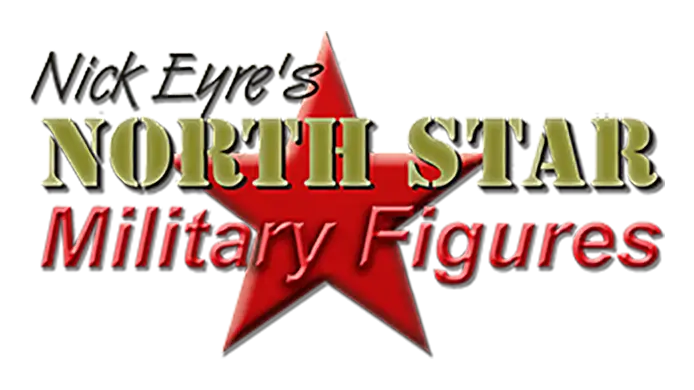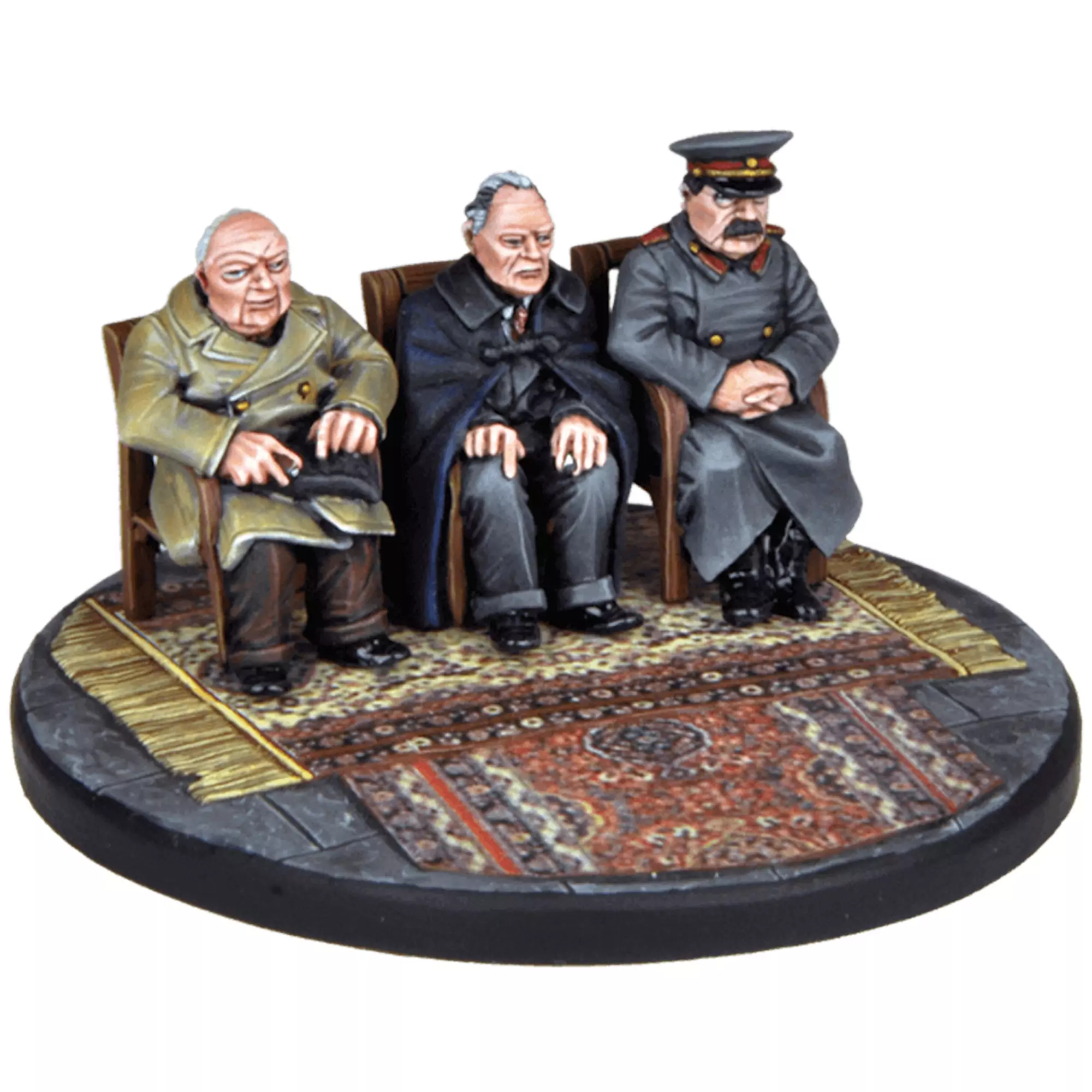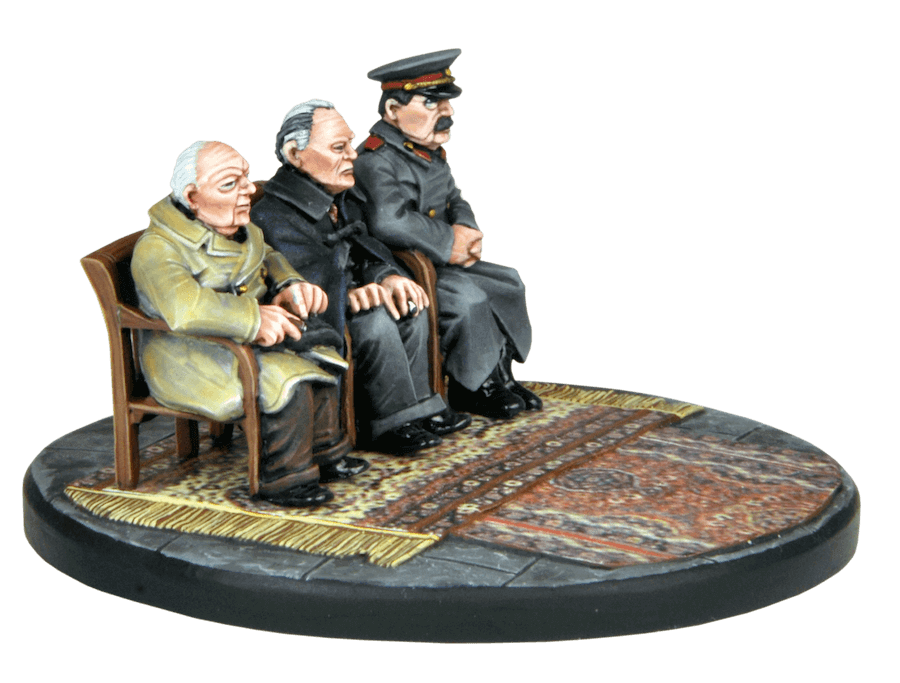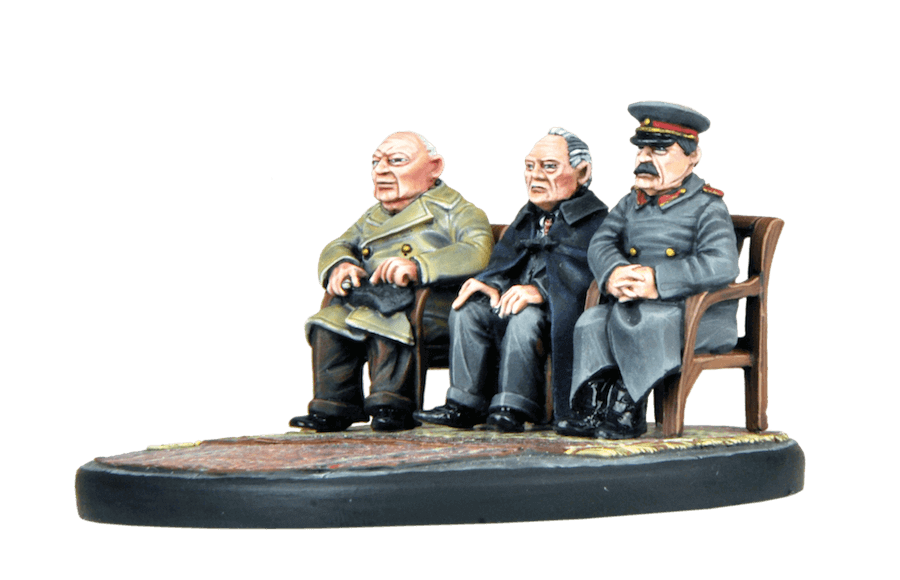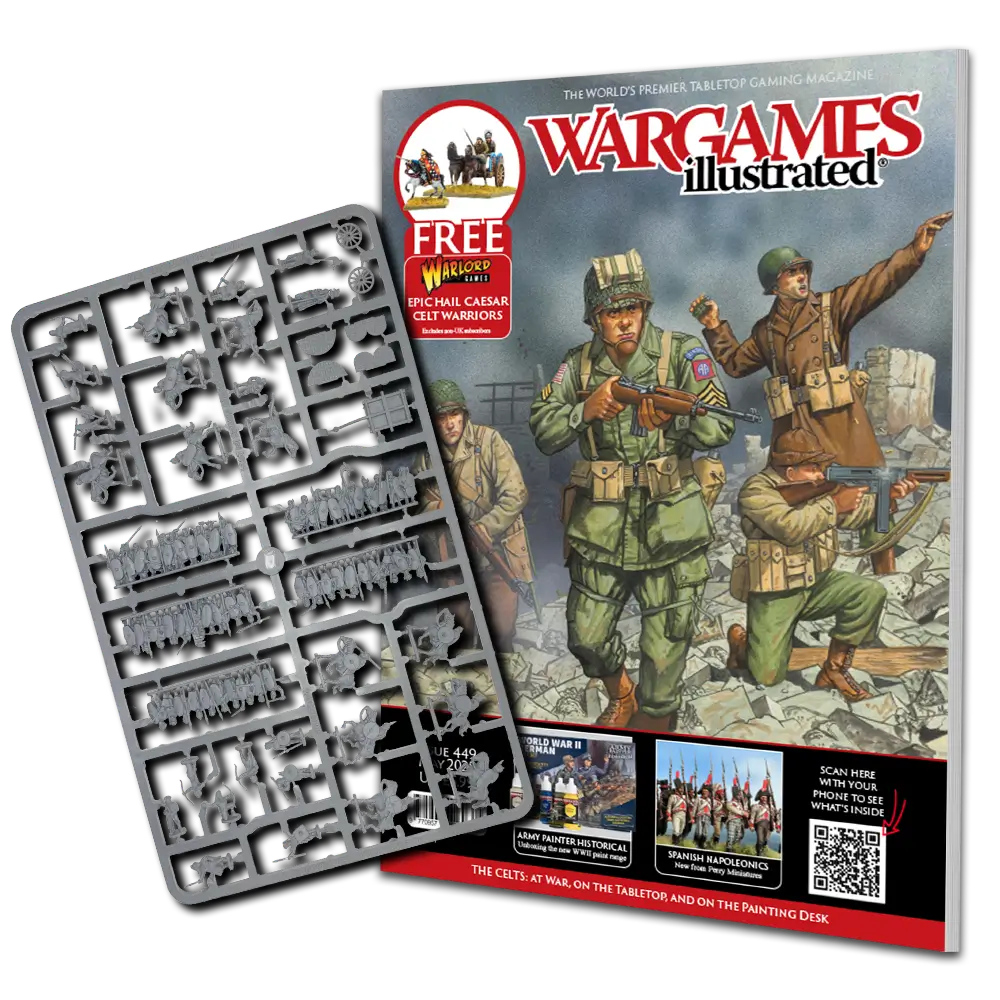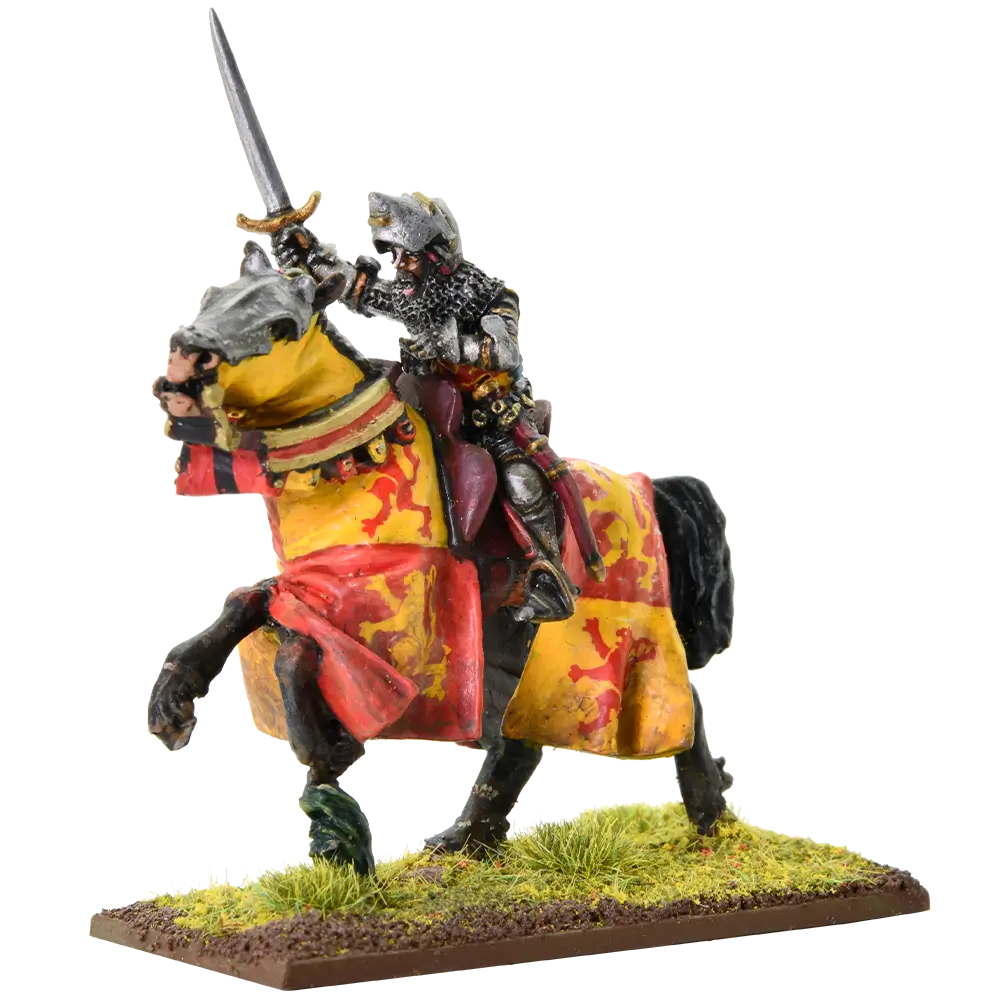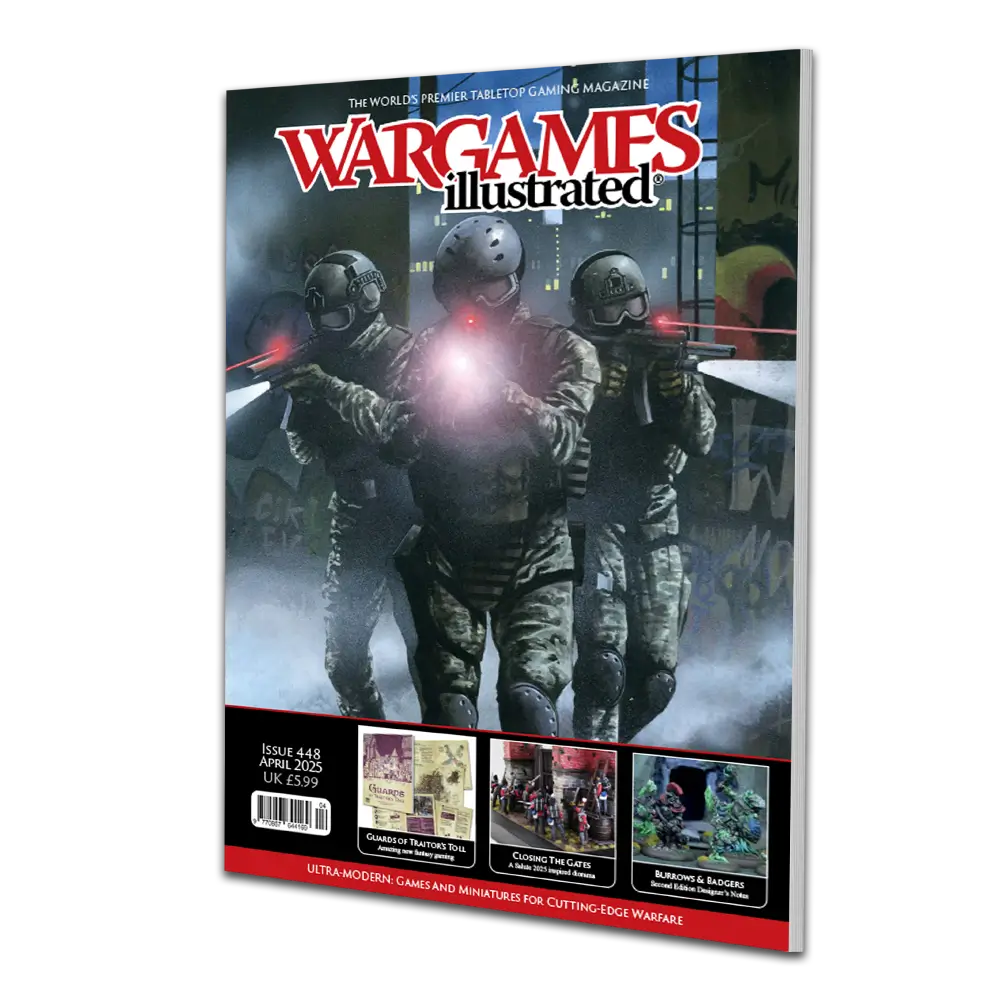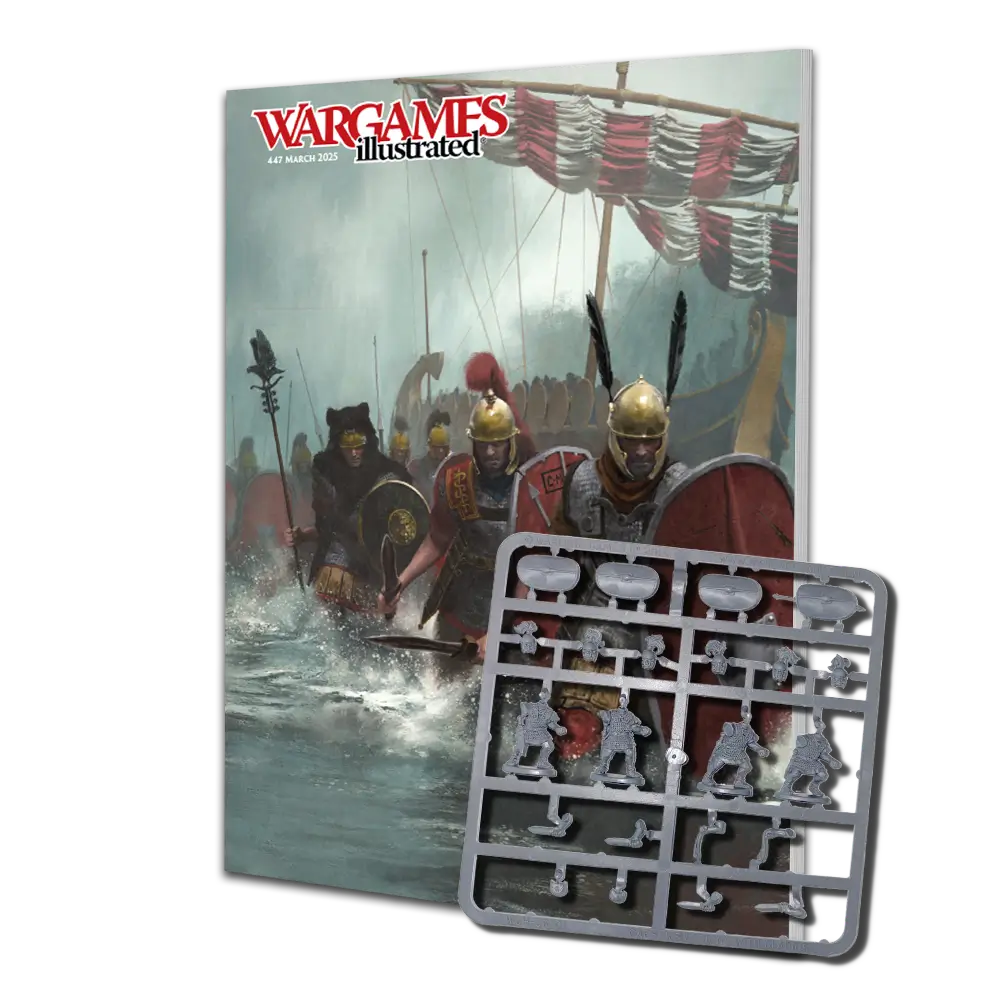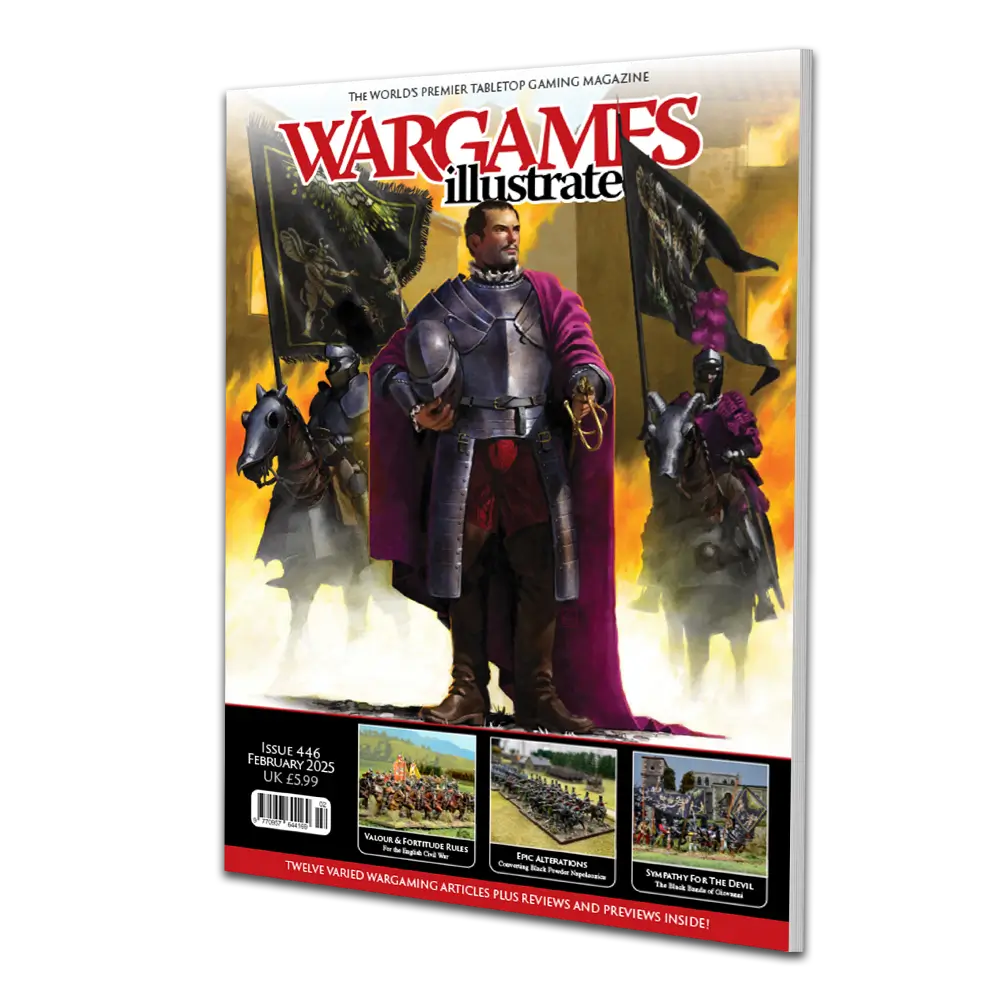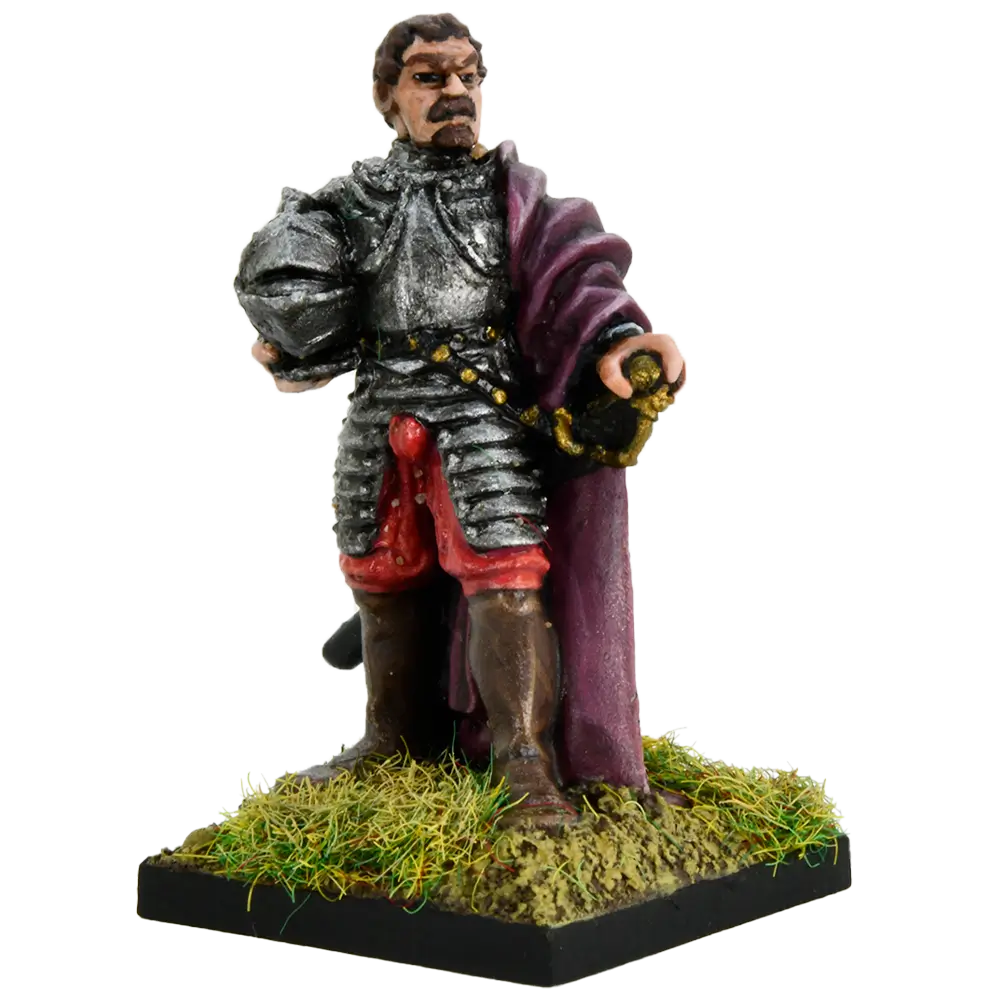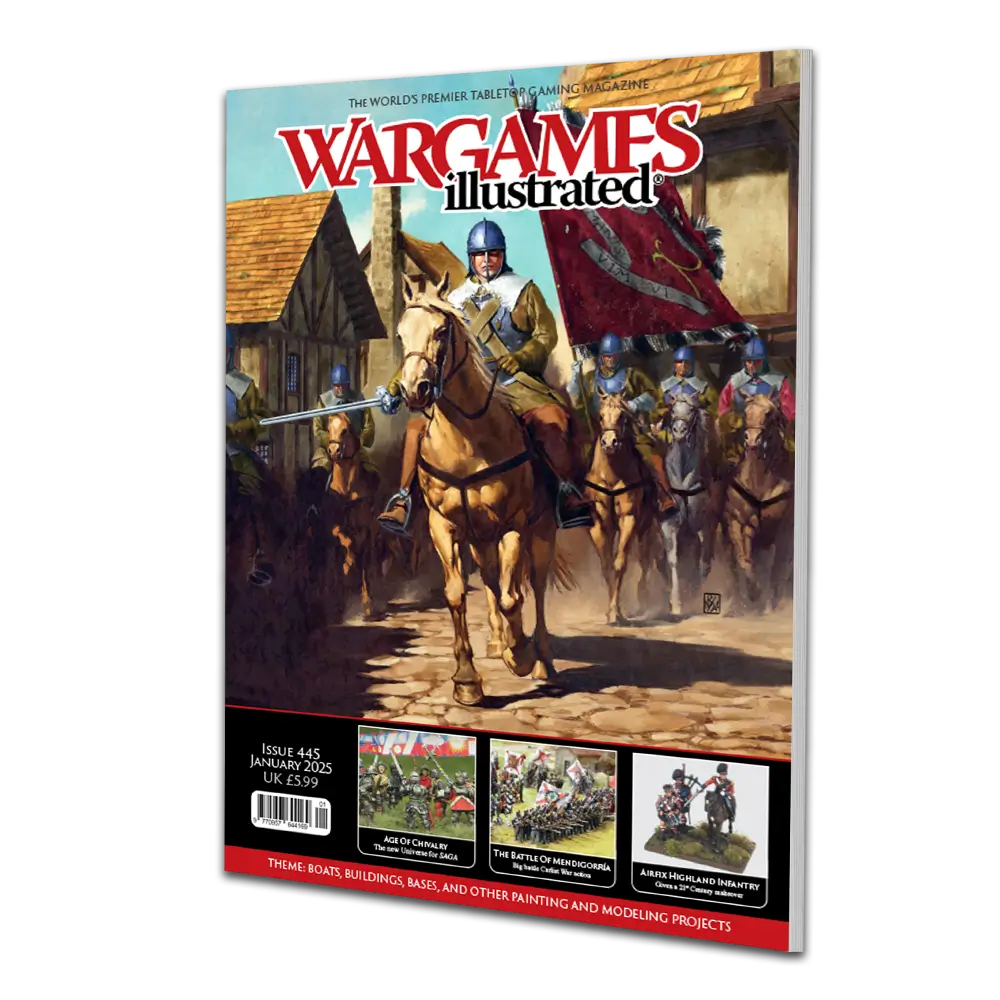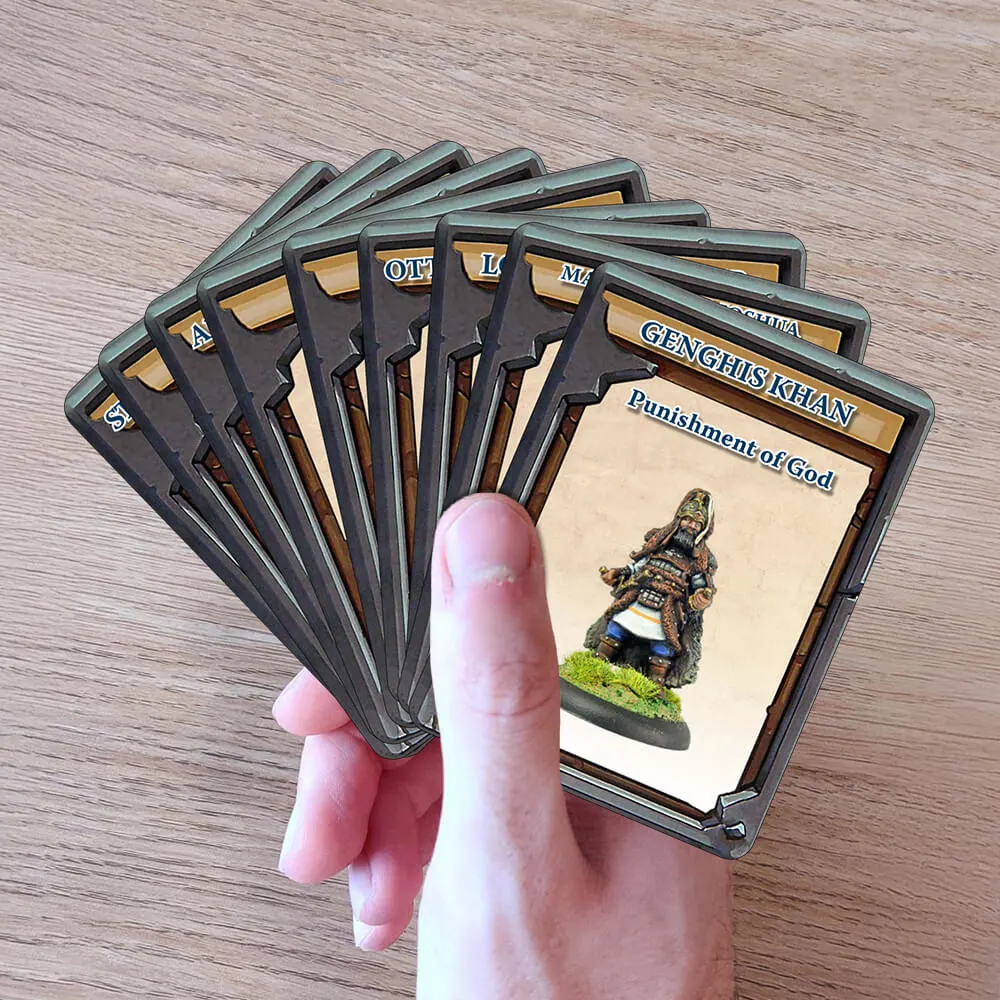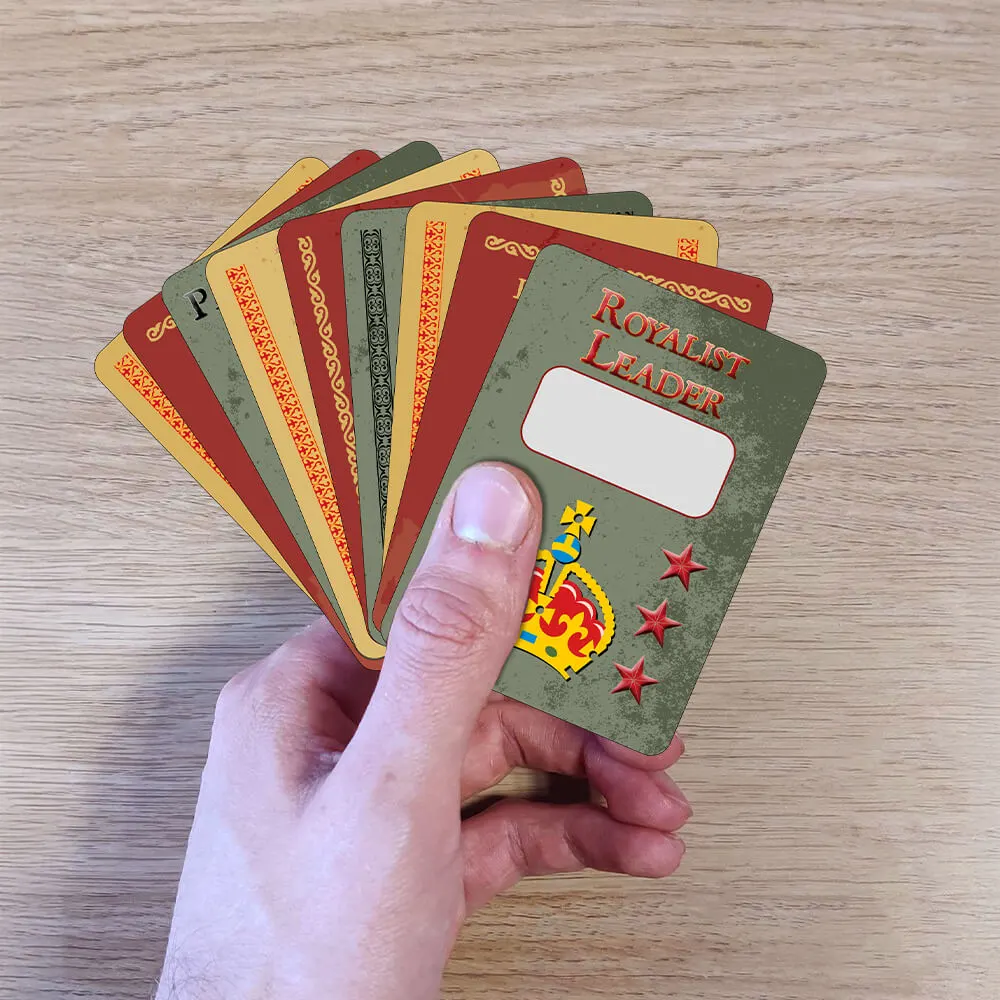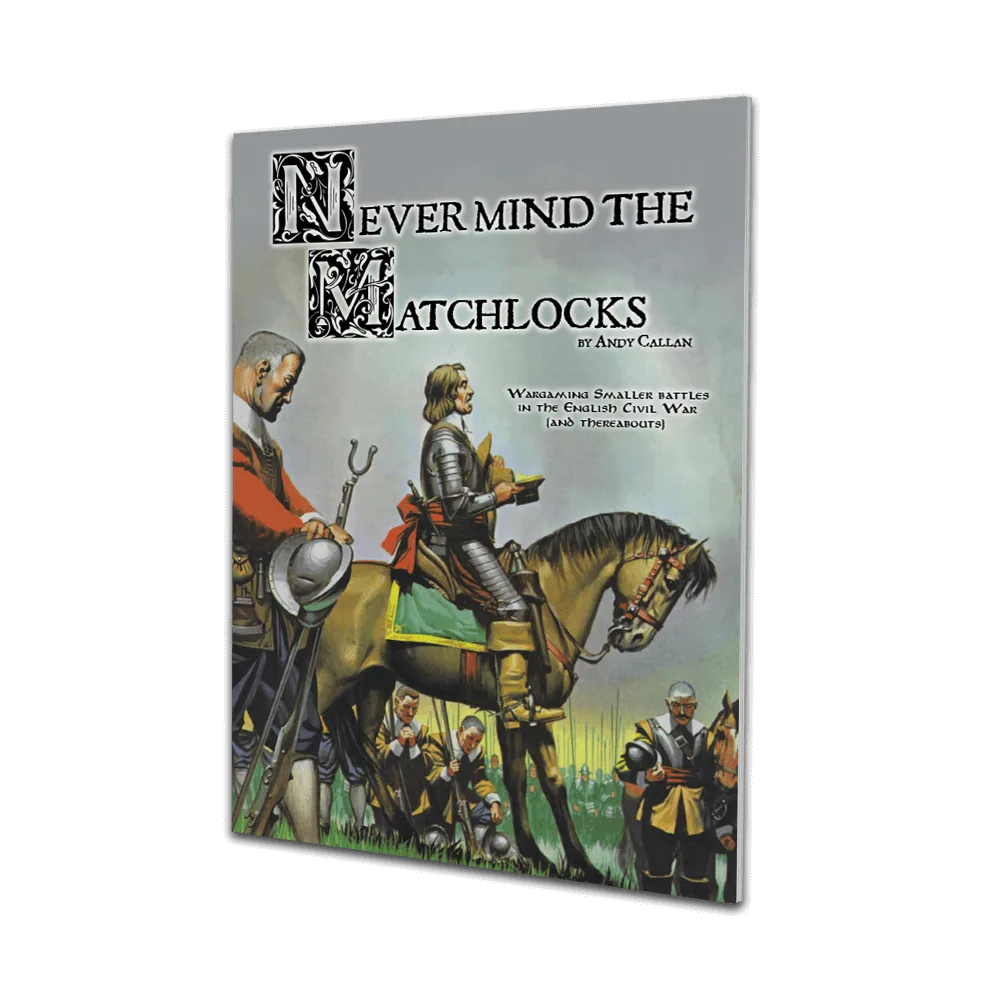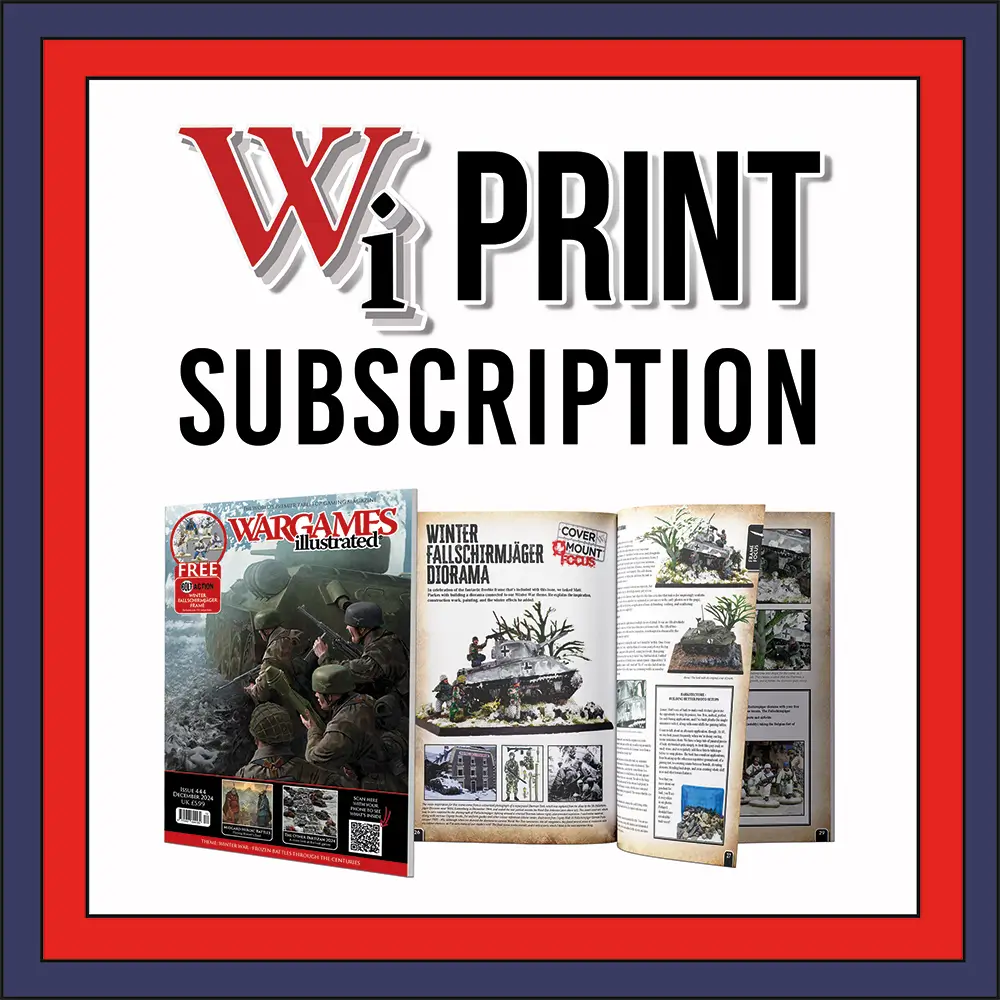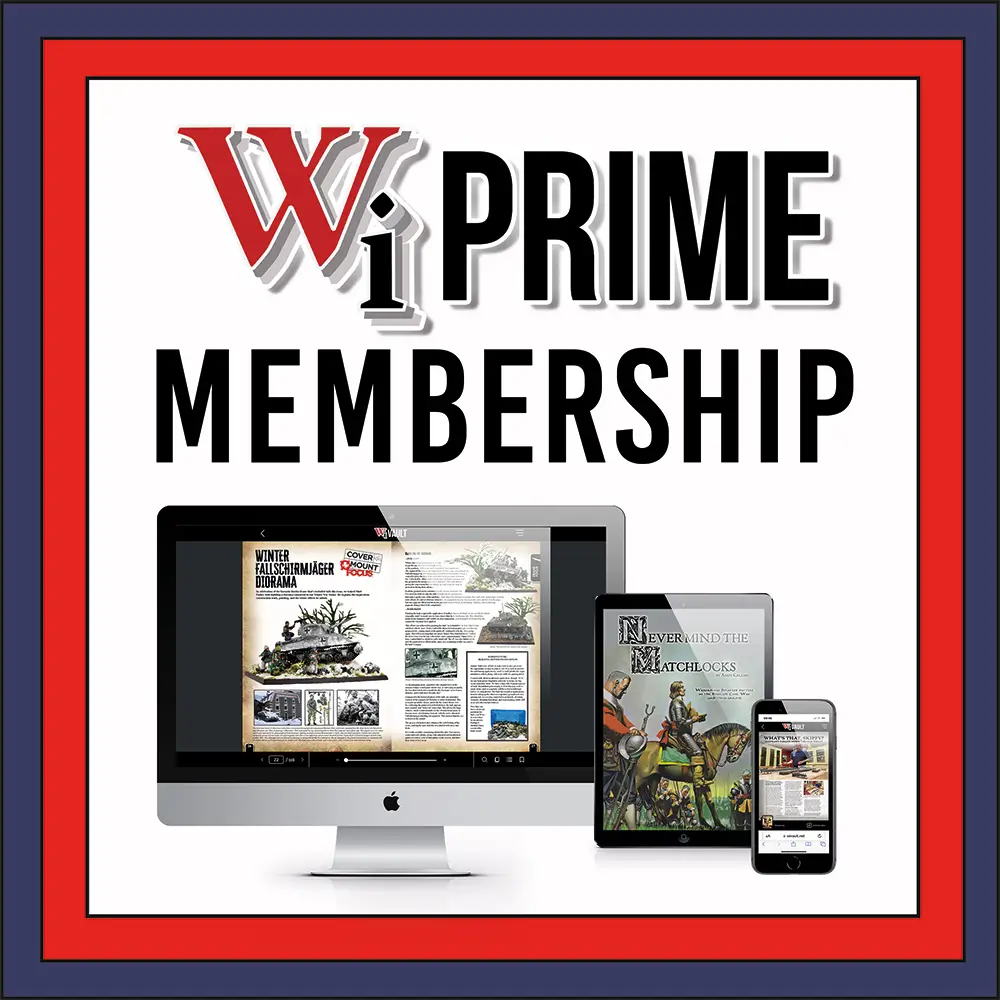Ordering from outside the UK?
We welcome magazine subscriptions and WiPrime membership orders from outside the United Kingdom – please order via our webstore. Digital/PDF products are also available to purchase and download here.
Our other products: Giants in Miniatures, games, physical magazines, and anything else that requires shipping, should be ordered from our distribution partner North Star Military Figures. You will find all Wi products on their website.
Heading to Salute 52? Feel free to order physical products from us and choose the ‘Collect at Salute’ option at the Checkout to pick up your items on the day.
Conference at Yalta
£7.50
The second meeting of the leaders of the three central Allied nations. Churchill, Roosevelt, and Stalin met at Yalta, in Crimea, to discuss the organization of post-war Europe, following the inevitable fall of the teetering German Reich.
On February 4th, 1945, the German Third Reich is in its death throes. The Soviets, British, and Americans have flayed Hitler’s German armies across the Russian steppes, over deserts and mountains, and finally into the Fatherland itself. German defeat is inevitable and to the victor will go the spoils. But what are those spoils, and who gets what? To decide how to establish a new order out of the European chaos, Josef Stalin of the Soviet Union, Franklin Delano Roosevelt in one of his last important missions as the United States President, and Britain’s Prime Minister Winston Churchill come together in Yalta on the Crimean Peninsula. The world waits with bated breath.
Seven days later, the “Big Three” pose for the press in the cold Crimean sunshine. Stalin seems ebullient in unguarded moments as perhaps he should. At other times, the severe countenance of the Bolshevik dictator reclaims its territory. Stalin’s agenda for this meeting was to build a buffer around the Soviet Union so that what happened in the German invasion of 1941 could never happen again. To establish the Soviet zone of control, however, would require the subjugation of various nations, including Poland whose national integrity provided the justification for the war in the first place. Stalin could not have cared less; if Poland wanted to land, she could take it from the Germans, and, anyway, he promised the Polish free elections. The Polish would get their elections, but they were far from free.
Roosevelt and Churchill acquiesced to Stalin’s demands. (What else could they do? Soviet soldiers were straining at the bit just a few days march from Berlin) and East Europe was almost completely occupied. Moreover, the weak and worn-out Roosevelt wanted Soviet help against Japan and he was prepared to concede almost any point to get it. The United States was war-weary, almost as exhausted as its President, and the price of the imminent invasion of Japan promised to be exceedingly high. Stalin agreed, much to the relief of Roosevelt.
Both the British and the Americans wanted Soviet participation in the United Nations Security Council. Stalin was not keen but would go along if members were given veto powers. He won that concession too and he had reason to be optimistic. With the Americans and Soviets achieving at least some of their goals, Churchill’s seemingly satisfied demeanour was the most surprising in the Yalta photographs. True, the British Prime Minister was on the winning side. Once it seemed that Britain was close to being extinguished by the Nazi menace, the Polish elections and Soviet Union’s agreement with the United Nations earned Churchill’s place in history. The passing of the Imperial superpower torch to his allies must have galled Churchill, however; but maybe he had not yet realized that was what happened here.
Like the Greek gods of ancient times, Stalin, Roosevelt, and Churchill at Yalta moved nations and peoples around like units on a vast wargames table. Once the Nazis were defeated, a point all three agreed on, the world would enter a new phase that would take decades, perhaps centuries, to sort out, but in February 1945 the dice were still to be cast.
Featured and Discounted Products
Browse the most recent releases in the Wi webstore.

